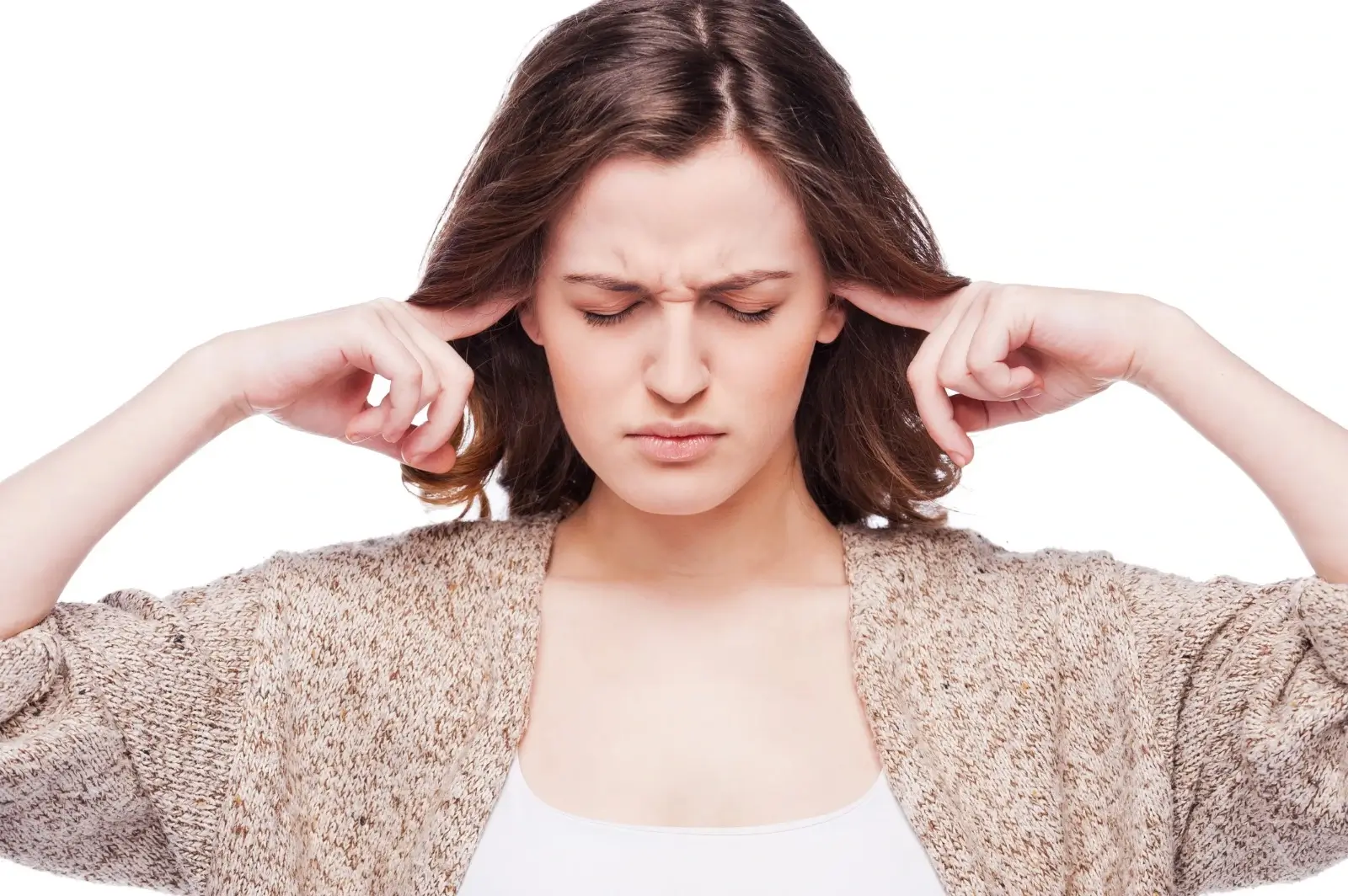
Tinnitus: When the World Goes Silent, But Your Ears Don’t
A Sound Only You Can Hear:
“It’s like a cricket living inside my ear—day and night.”
Tinnitus is often dismissed as a mild annoyance. But for those who live with it, it’s a relentless soundtrack to life—a sound no one else hears, and few understand. Often described as ringing, it can also resemble hissing, buzzing, or roaring, and it affects nearly 15% of the global population, according to the American Tinnitus Association (ATA).
This blog explores tinnitus—what causes it, how it impacts quality of life, and evidence-backed ways to manage it holistically.
What Exactly Is Tinnitus?
Tinnitus isn’t a condition in itself—it’s a symptom. It usually signals an underlying issue in the auditory system.
Common sounds:
Ringing (most reported)
Buzzing
Hissing
Roaring
Clicking
Whooshing
Types of tinnitus:
Subjective tinnitus (most common): Only you can hear it.
- Objective tinnitus: Rare, but a doctor can hear it via examination (often linked to blood vessel or muscular issues).
What Causes Tinnitus?
Tinnitus can arise from a variety of root causes—some reversible, others more chronic.
➤ Hearing Loss
Age-related hearing loss or prolonged exposure to loud noise (headphones, concerts, machines) often damages hair cells in the inner ear, triggering tinnitus.
➤ Earwax Blockage
Too much wax can trap sounds and irritate the eardrum, causing noise perception.
➤ Ototoxic Medications
Certain antibiotics, chemotherapy drugs, and high-dose aspirin can harm inner ear structures.
➤ Neck or Jaw Issues (TMJ)
Misaligned jaw or tight neck muscles can alter nerve signals related to hearing.
➤ Hormonal Fluctuations in Women
Research shows that hormonal shifts (e.g., menopause, thyroid issues, pregnancy) can alter cochlear function and aggravate tinnitus.
➤ Cardiovascular Conditions
High blood pressure or turbulent blood flow can cause pulsatile tinnitus—a rhythmic sound matching the heartbeat.
What Tinnitus Feels Like: The Real-Life Impact
Tinnitus isn’t just a sound problem—it’s a mental health and quality of life issue.
⚠️ Common Complaints:
Sleep disruption
Poor concentration
Irritability
Anxiety or depression
Social withdrawal
In fact, studies show that people with severe tinnitus are at higher risk for generalized anxiety disorder and major depressive disorder.
5. Can Tinnitus Be Cured?
Currently, there’s no definitive cure for tinnitus—especially in chronic cases. But here’s the good news: it can often be managed so well that it becomes barely noticeable.
Treatment Options: From Medical to Mind-Body
🔬 Medical Approaches
Hearing aids (especially for age-related or noise-induced tinnitus)
Sound therapy (white noise machines or masking devices)
Cognitive Behavioral Therapy (CBT) to reduce the emotional distress
Tinnitus Retraining Therapy (TRT) combines counseling and sound therapy
Antidepressants or antianxiety meds, only if severe
🌿 Holistic Strategies That Work
Mindfulness & Meditation: Reduces stress reactivity to sound
Acupuncture: Mixed evidence, but some report relief
Yoga & Breathwork: Promotes parasympathetic calm
Dietary support:
Magnesium, zinc, B12—linked to auditory health
Antioxidant-rich foods to reduce neural inflammation
Limiting stimulants: Caffeine, nicotine, and alcohol may worsen symptoms
⚠️ Emerging Therapies
Neuromodulation (like Lenire device): Stimulates auditory and tongue nerves simultaneously
Transcranial Magnetic Stimulation (TMS): For severe cases with accompanying depression
When to Seek Help
Don’t ignore persistent ringing or buzzing.
Consult a professional if:
It lasts more than a few days
It interferes with daily life
It’s accompanied by hearing loss or dizziness
It’s pulsing with your heartbeat
It comes suddenly after a loud noise exposure or trauma
Women & Tinnitus: A Hormonal Angle
Women navigating perimenopause, menopause, thyroid fluctuations, or PCOS may notice a spike in tinnitus symptoms. That’s because estrogen and progesterone influence auditory nerve function and inner ear blood flow.
If you’re experiencing ear ringing along with sleep issues, hot flashes, or mood swings—it might be part of the hormonal orchestra.
How to Make Peace With the Noise
Living with tinnitus doesn’t mean surrendering to it.
Try this daily:
Use white noise or natural sounds during sleep
Cut back on sugar, salt, and stimulants
Wear hearing protection at loud venues
Spend time in nature—calms the nervous system
Track your triggers (journal what worsens symptoms)
Real Story, Real Hope
“I thought I’d go crazy. But once I stopped fighting it and focused on calming my body, it faded into the background.” — Ditipriya, 49, living with tinnitus for 3 years
Meera’s story isn’t uncommon. Many women in midlife find that addressing their nervous system, hormone balance, and lifestyle triggers often tones down the volume of tinnitus—even when it can’t be ‘cured.’
Conclusion: You’re Not Alone in This Soundscape
Tinnitus is deeply personal, often invisible to others—but that doesn’t mean it’s insignificant.
Whether your buzz is a faint background or a roaring interruption, remember: there are ways to retrain your brain, support your nervous system, and regain peace.
And if you ever feel overwhelmed? Don’t navigate this alone. Speak to an audiologist, an ENT, or a mental health expert. Support groups—online and offline—are real lifelines.
In case you have more questions and queries on Tinnitus and more join the Miror Community where real women and health experts come together to decode midlife symptoms like tinnitus, mood shifts, fatigue, and so much more. Let’s connect! We’re waiting for you.💗
SOME EXPERT LINKS FOR YOU:
Mayo Clinic: Are you hearing crickets?
Tinnitus UK: Tinnitus and menopause
NIH: Tinnitus
Hearing Health Foundation: Making Peace With the Crickets in My Ears
FAQs
Yes. While not widely discussed, recent research suggests a link between gut-brain axis dysfunction and neurological symptoms—including tinnitus. Chronic inflammation stemming from poor gut health may affect the vagus nerve, which plays a role in auditory regulation. Addressing gut dysbiosis with probiotics, polyphenols, and a high-fiber diet could potentially improve tinnitus perception in sensitive individuals.
At night, your environmental noise drops, and your brain's auditory cortex—deprived of external stimuli—can amplify internal sounds like tinnitus. But there's more: cortisol levels dip at night, which may heighten auditory sensitivity in some people. Also, increased blood flow to the head in a supine position can enhance pulsatile tinnitus or pressure-related symptoms.
Absolutely. Bruxism or tight jaw clenching—often linked to anxiety—can stress the temporomandibular joint (TMJ), which shares nerve pathways with parts of the ear. This can lead to or aggravate tinnitus. Many patients experience tinnitus relief with night guards, jaw physiotherapy, or stress-relieving practices like biofeedback.
This is often due to temporary vascular or neurological stimulation. Foods high in sodium, caffeine, aged cheese (tyramine), or MSG can alter inner ear fluid balance or dilate blood vessels, triggering temporary tinnitus spikes. Even without allergies, histamine sensitivity or blood sugar fluctuations from refined carbs can also influence tinnitus.
Yes—psychosomatic medicine has shown that unprocessed emotional trauma can heighten sensory perception and distress signals like tinnitus. PTSD, long-term anxiety, and repressed grief may sensitize the limbic system, making internal sounds feel louder and more distressing. Modalities like EMDR therapy, trauma-informed yoga, or somatic therapy have shown promise in helping patients lower tinnitus intensity by calming the emotional nervous system.

Rini Ghosh





